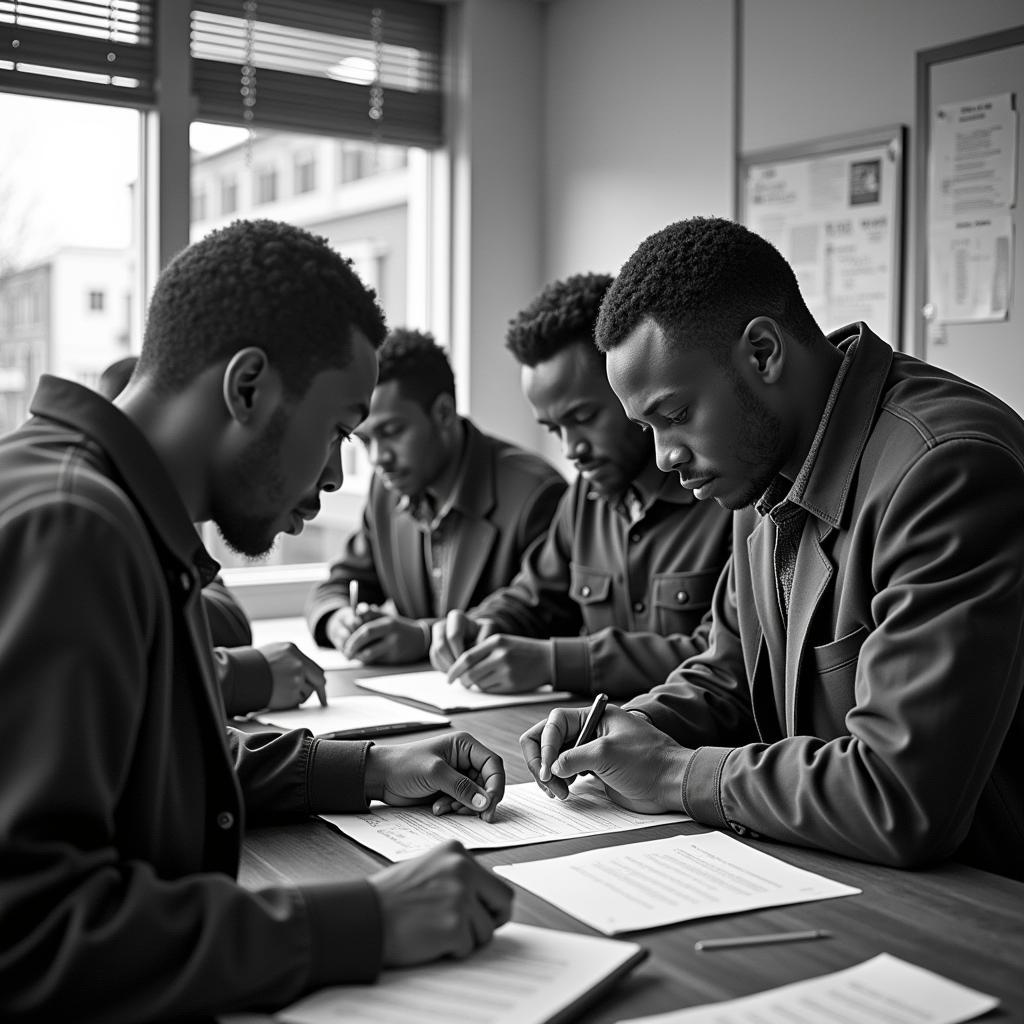African American Organizations and the Civil Rights Movement
The Civil Rights Movement wouldn’t have been possible without the tireless efforts of numerous African American organizations. These groups, driven by a shared vision of equality and justice, mobilized communities, challenged discriminatory laws, and ultimately reshaped the American landscape. From legal battles to grassroots activism, their impact is undeniable. This article delves into the pivotal role these organizations played in securing civil rights for African Americans.
The Power of Collective Action: Key African American Organizations in the Civil Rights Era
The struggle for civil rights wasn’t a monolithic movement. It was a tapestry woven together by diverse groups, each with its unique approach but unified by the common goal of achieving racial equality. Some organizations focused on legal strategies, meticulously dismantling segregation through court cases. Others employed direct action, staging protests and demonstrations to confront injustice head-on. This section explores some of the most influential African American organizations during this transformative period. The NAACP, with its focus on legal challenges, played a crucial role in landmark cases like Brown v. Board of Education. Organizations like the SCLC and SNCC championed nonviolent resistance, mobilizing communities and empowering individuals to demand change.
The Southern Christian Leadership Conference (SCLC), led by Dr. Martin Luther King Jr., advocated for nonviolent resistance and played a key role in organizing major campaigns, such as the Montgomery Bus Boycott and the Birmingham Campaign. The Student Nonviolent Coordinating Committee (SNCC), initially comprised of student activists, engaged in sit-ins, Freedom Rides, and voter registration drives, often facing violent opposition. These organizations, alongside others like the National Urban League and CORE (Congress of Racial Equality), created a powerful force for change.
Legal Battles and Grassroots Activism: Strategies for Change
The fight for civil rights employed a multifaceted approach, combining legal challenges with grassroots activism. The NAACP, through its Legal Defense and Educational Fund, spearheaded legal battles against segregation, culminating in the landmark Brown v. Board of Education decision that declared state-sponsored segregation in public schools unconstitutional. While legal victories were crucial, grassroots activism, often spearheaded by organizations like SCLC and SNCC, was equally important. These groups mobilized communities through boycotts, marches, and voter registration drives, putting immense pressure on the government to act. The synergy between legal strategies and grassroots mobilization proved to be a powerful catalyst for change.
Consider the Montgomery Bus Boycott, a pivotal moment in the civil rights movement. Sparked by Rosa Parks’ courageous refusal to give up her seat on a segregated bus, the boycott, organized by the Montgomery Improvement Association with the support of Dr. King and the nascent SCLC, demonstrated the power of collective action. It lasted over a year and resulted in the desegregation of Montgomery’s bus system.
What was the NAACP’s primary focus during the Civil Rights Movement?
The NAACP primarily focused on legal strategies to dismantle segregation through court cases.
How did the SCLC contribute to the Civil Rights Movement?
The SCLC advocated for nonviolent resistance and organized major campaigns like the Montgomery Bus Boycott and the Birmingham Campaign.
 African Americans Registering to Vote
African Americans Registering to Vote
For instance, if you’re interested in learning more about African fashion, you can check out African evening dresses UK or explore diverse African culture patterns. For accessories, consider African bronze bangles and even delve into the world of African jewellery vector. You can even find African fabric UK if you’re interested in creating your own designs.
The Legacy of the Civil Rights Movement and its Continuing Relevance
The Civil Rights Movement, propelled by the dedicated efforts of African American organizations, achieved significant victories in dismantling legal segregation and securing voting rights. However, the fight for equality is far from over. The legacy of these organizations continues to inspire contemporary movements for social justice, reminding us of the power of collective action and the ongoing need to address systemic inequalities. The fight for equal rights continues today, drawing inspiration and lessons from the struggles of the past.
Conclusion: The Enduring Impact of African American Organizations on Civil Rights
The Civil Rights Movement, fueled by the unwavering commitment of African American organizations, dramatically reshaped the American social and political landscape. From legal battles to grassroots activism, these organizations played a critical role in securing fundamental rights for African Americans. Their legacy continues to resonate today, reminding us of the power of collective action and the ongoing struggle for equality and justice.
FAQ
- What was the role of the NAACP in the Civil Rights Movement? The NAACP played a crucial role through legal challenges, leading to landmark cases like Brown v. Board of Education.
- How did the SCLC differ from the SNCC? The SCLC focused on nonviolent direct action led by Dr. King, while SNCC, comprised of student activists, engaged in sit-ins and Freedom Rides.
- What was the significance of the Montgomery Bus Boycott? It demonstrated the power of nonviolent protest and led to the desegregation of Montgomery’s bus system.
- What were some key strategies used by civil rights organizations? Key strategies included legal challenges, nonviolent direct action, boycotts, marches, and voter registration drives.
- What is the lasting impact of the Civil Rights Movement? The movement achieved significant legal victories and continues to inspire movements for social justice today.
- How did African American organizations contribute to the Civil Rights Movement? They mobilized communities, challenged discriminatory laws, and advocated for equal rights through various strategies.
- What is the significance of African American organizations in the Civil Rights Movement? They were essential to the success of the movement, providing leadership, resources, and strategic direction.
More to Explore
- The History of the NAACP
- The Life and Legacy of Dr. Martin Luther King Jr.
- The Role of Student Activism in the Civil Rights Movement
Need assistance? Contact us: Phone: +255768904061, Email: kaka.mag@gmail.com or visit us at: Mbarali DC Mawindi, Kangaga, Tanzania. We have a 24/7 customer service team.

